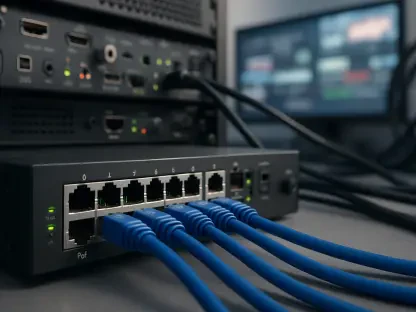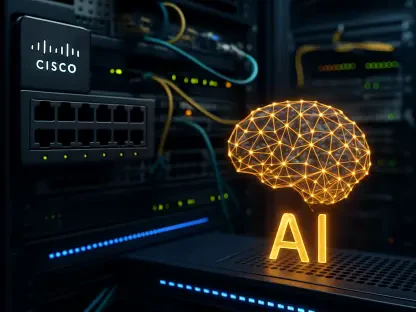Imagine a hospital where network failures are detected and resolved within seconds, ensuring that critical medical systems never falter during patient care. This is no longer a distant vision but a reality at Hana Otolaryngology Hospital, where a groundbreaking AI-based real-time network monitoring system has redefined healthcare IT. Under the visionary leadership of Hospital Director Lee Sang-deok, the hospital has embraced artificial intelligence to strengthen its technological infrastructure, setting a new standard for operational efficiency. This innovative system not only ensures seamless connectivity but also elevates the quality of medical services by minimizing disruptions. The integration of advanced tools and AI capabilities shows how technology can tackle long-standing challenges in a medical environment, paving the way for a future where patient care and IT operations are closely aligned. This development is a testament to the transformative power of AI, demonstrating its potential to revolutionize the healthcare sector with precision and speed.
Pioneering Network Stability with AI Innovation
At the heart of Hana Otolaryngology Hospital’s technological advancement lies a sophisticated real-time network monitoring and automatic notification system, carefully designed to enhance stability. By using open-source tools like Prometheus, Blackbox Exporter, and Grafana, the hospital ensures continuous oversight of network equipment, quickly identifying delays or disconnections. What sets this system apart is the extensive use of OpenAI’s GPT technology, which played a key role in its development. Beyond simple code generation, GPT optimized complex queries, designed alert rules, created natural language notifications, diagnosed errors, and even advised on system architecture to reduce delays. This AI-driven approach resulted in a robust framework capable of alerting staff within seconds of an issue, thereby preventing potential disruptions to critical operations. Park Wan-jin, head of the computer team, emphasized how AI sped up the project timeline while significantly improving system quality, proving that intelligent technology can turn even the most complex aspects of healthcare IT into reliable solutions.
Future Horizons in AI-Driven Healthcare Operations
Reflecting on the successful deployment of this network monitoring system, Hana Otolaryngology Hospital has turned challenges into stepping stones for broader innovation in the past. The initiative drastically reduced downtime by replacing manual equipment checks with 24/7 automated oversight, ensuring that patient care systems remained operational when it mattered most. Looking ahead, the hospital aims to expand AI-assisted development into monitoring medical device statuses, predicting server loads, and stabilizing Electronic Medical Record (EMR) systems. Plans are also underway to explore AIOps—AI for IT Operations—integrating artificial intelligence into wider operational frameworks. Beyond infrastructure, future projects may include predicting patient waiting times and analyzing treatment patterns through customized GPT models. This forward-thinking strategy highlights a commitment to digital transformation, suggesting that other healthcare institutions could adopt similar AI integrations to boost efficiency. As the sector evolves, embracing such technology will be crucial for balancing innovation with practical medical needs, ensuring improved service delivery.









